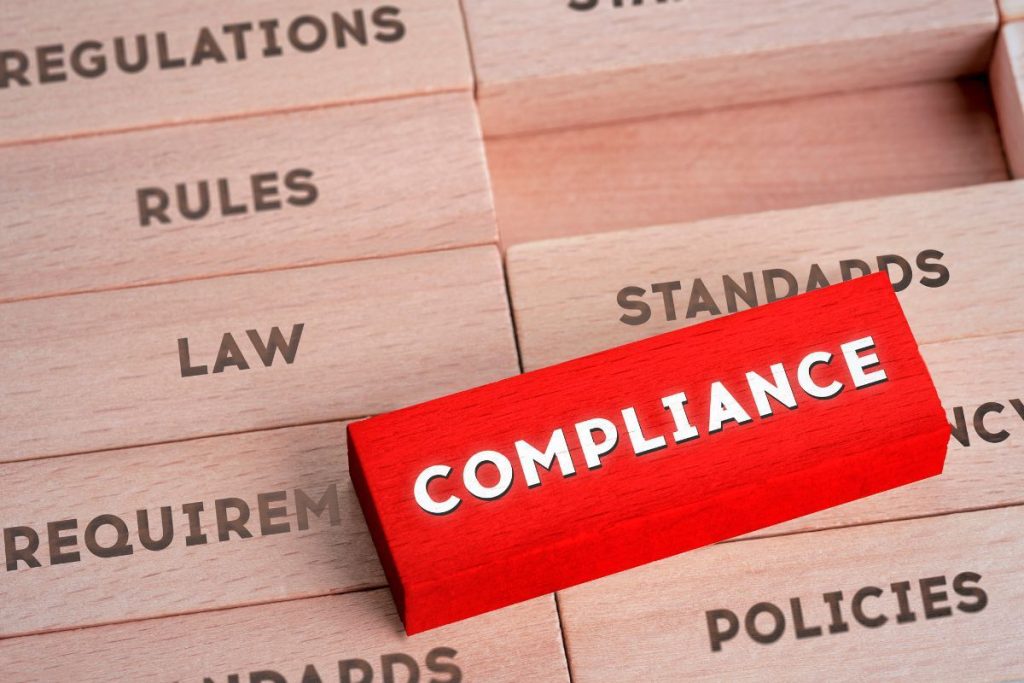
In today’s rapidly evolving technological landscape, businesses operating in the tech industry must navigate a complex maze of regulations to ensure they stay on the right side of the law. Regulatory compliance has become a critical aspect for companies seeking to build trust with their customers, protect sensitive data, and avoid hefty penalties associated with non-compliance.
The Importance of Regulatory Compliance
Regulatory compliance is the process by which companies adhere to specific laws, regulations, and guidelines set by governing bodies. In the tech industry, compliance extends to areas such as data protection, privacy, intellectual property, cybersecurity, and ethical standards. Failing to comply with these regulations can have severe consequences, including reputational damage, legal actions, and financial losses.
While regulatory compliance may seem daunting, it is essential for tech companies to establish a culture of compliance from the outset. By doing so, they can demonstrate their commitment to ethical conduct, protect customer data, and avoid the pitfalls of non-compliance.
The Challenges of Regulatory Compliance in the Tech Industry
The tech industry is constantly evolving, with new technologies, applications, and business models emerging at a rapid pace. This presents unique challenges for regulatory compliance, as laws and regulations struggle to keep up with these advancements. Companies must stay up to date with the evolving regulatory landscape and adapt their processes and operations accordingly.
One of the biggest challenges in the tech industry is ensuring the security of sensitive data. Data breaches and cyberattacks are on the rise, and the potential financial and reputational damage can be catastrophic. Compliance with laws and regulations related to cybersecurity, such as the General Data Protection Regulation (GDPR) or the California Consumer Privacy Act (CCPA), is crucial to protect customer data and avoid legal repercussions.
Furthermore, intellectual property rights play a crucial role in the tech industry. Companies need to understand and comply with intellectual property laws to prevent any infringement and protect their own innovative ideas. This includes obtaining the necessary patents, trademarks, and copyrights to safeguard their intellectual assets.
Developing a Robust Compliance Framework
Creating a robust compliance framework is essential for tech companies aiming to navigate the regulatory landscape effectively. Here are some key steps to consider:
Educate and Train Employees:
Employees should receive comprehensive training on regulatory compliance, including the specific laws and regulations that apply to their roles. This will ensure a better understanding of compliance requirements and reduce the risk of inadvertent violations.
Implement Internal Controls:
Establishing internal controls and policies is crucial in ensuring compliance. By implementing a system of checks and balances, companies can minimize the risk of non-compliance and fraud. Regular audits should also be conducted to identify any potential issues and rectify them promptly.
Stay Informed and Engage with Regulatory Authorities:
It is essential to stay informed about the latest developments in regulations and engage with relevant regulatory authorities. This includes active participation in industry forums, conferences, and staying updated on any proposed regulatory changes. By doing so, companies can proactively adapt their compliance measures to meet evolving requirements.
Partner with Legal Experts:
Seeking professional legal advice is invaluable when it comes to regulatory compliance. Attorneys specializing in tech law can provide valuable insights and guidance tailored to the industry’s specific regulatory landscape. They can assist in drafting contracts, assessing compliance risks, and ensuring all necessary documentation is in place.
The Benefits of Regulatory Compliance
While regulatory compliance may require significant effort and resources, it brings several benefits to tech companies:
Enhanced Reputation and Trust:
Compliance demonstrates a commitment to ethical behavior, data protection, and customer privacy. This enhances a company’s reputation, builds trust with customers, and differentiates it from non-compliant competitors.
Reduced Risk of Legal Action:
Compliance minimizes the risk of legal actions and associated financial penalties, which can be substantial. This helps companies avoid costly lawsuits and reputational damage that could adversely impact their operations.
Improved Data Security:
Strict compliance with data protection regulations reduces the risk of data breaches and cyberattacks. By implementing necessary measures, such as encryption and access controls, companies can safeguard customer data and protect against potential liabilities.
Access to New Markets:
Regulatory compliance is often a prerequisite for entering new markets. By ensuring compliance with local and international regulatory standards, tech companies can expand their operations and access a broader customer base.
Conclusion
Regulatory compliance is a critical aspect of success in the tech industry. By staying on the right side of the law, companies can build trust, protect customer data, and avoid severe penalties associated with non-compliance. The challenges may be significant, but with a robust compliance framework, regular training, and professional legal guidance, tech companies can navigate the complex regulatory landscape while reaping the benefits of compliance.


